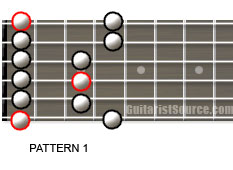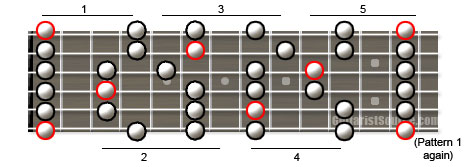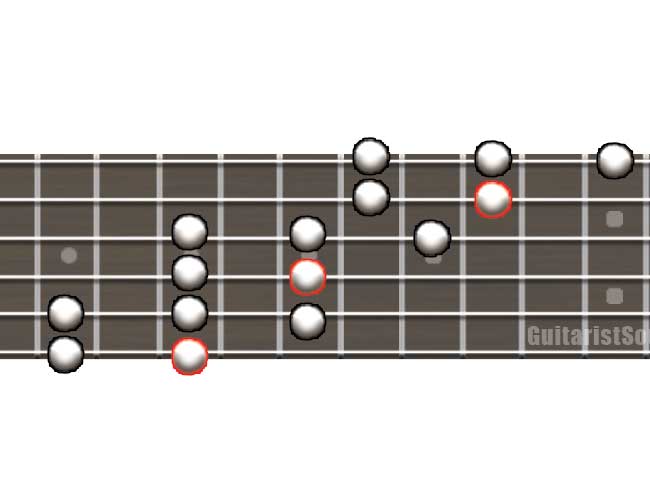Learning and Using Minor Pentatonic Scales
The minor pentatonic scale is a basic five note scale used in blues and rock music, and can be used for lead guitar riffs and soloing played over minor chord progressions.
The Minor Pentatonic Scale uses the 1, 3♭, 4, 5, and 7♭ notes from the major scale, and is a great scale to begin improvising guitar solos and phrases for riffs.

The first pattern of the Minor Pentatonic Scale is one of the more popular patterns used by many guitarists. Once you have this pattern memorized, start playing just a few notes at a time to practice melodic patterns with the minor pentatonic scale.
It’s a good idea to remember the root note locations (shown in red on the diagram) in the pattern you are playing. This will help when improvising and soloing as you learn.
Each pattern of the scale connects across the guitar fretboard and can be used to move fluidly through each pattern as needed in a solo or riff.
The diagram below shows the 5 Minor Pentatonic Scale Patterns spread over the length of the guitar neck using the F Minor Pentatonic Scale. The first pattern of the scale is located at the first fret with the root on the 6th (low E) string.


Click on a Tab to View the Minor Pentatonic Scale for Each Root Note
The formula for the minor pentatonic scale in steps is 1 and half whole steps, 1 whole step, 1 whole step, 1 and a half whole steps, 1 whole step.

